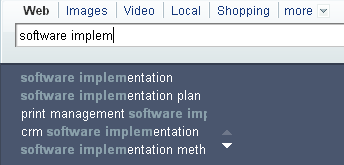Yahoo's 100-day review: A lot of cards shown already

Yahoo's 100-day strategic review is now in its 84th day and when the details do emerge chances are the plan will be anticlimactic.
Why? Yahoo's telegraphed its plans via a bevy of moves since CEO Jerry Yang mentioned his review that promised a "fresh look" at the company. Since then, Yahoo has revamped its search and local results. It has acquired companies such as Zimbra and Blue Lithium. And it also reshuffled management a bit and even had Steve Jobs into give vice presidents a pep talk. Yahoo has also launched a social networking experiment and left those always prevalent Facebook acquisition rumors to Microsoft.
Chances are good that Yahoo's review will surface when it reports its third quarter earnings Oct. 16. Wall Street is expecting Yahoo to report earnings of 8 cents a share on revenue of $1.24 billion, according to Thomson Financial. Technically, Yahoo's earnings report coincides with day 92 of its review, but it's close enough to spill the beans.
Here's a look at what Yahoo has telegraphed so far:
Search: Still a core focus. Given that Yahoo has launched another version of its search, bolstered its local results and is just now starting to see some benefits from its Panama initiative it's crystal clear that the company isn't going to punt on search.

It's highly unlikely that Yang would reverse course and drop its focus on search. Yahoo is clearly losing the market share game to Google, but display and search advertising is being bundled. Outsourcing to Google would hamper Yahoo's ability to bundle. One wild-card: Yahoo could outsource search to Google in international markets where the company is weaker.
Social networking: Build don't buy--yet. Is social networking a feature or a business? Yahoo appears to be in the feature camp. Yahoo hasn't made any bold strokes or acquisitions in social networking and doesn't look like it will. Microsoft seems to be the latest company trying to buy a piece of Facebook, but the price is steep.
Management changes: Haven't we had enough? Yang and Yahoo president Sue Decker have reshuffled sales managers, but there doesn't seem to be anything earth shattering on the horizon. The biggest move was to launch a new division called Global Partner Solutions to create best practices and hand the reins to Hilary Schneider. Given the revolving door at Yahoo in the last year some stability is probably best. Let the current team solidify and add a few key executives to fill out the roster.
Add it all up the chances are high that Yang's high-level review will leave impatient types annoyed. There are changes ahead, but the current thinking is that Yahoo has the assets in place and just needs to execute better. That outlook--which may be the right one--won't satisfy an impatient Wall Street, which likes a little drama in the form of break-ups, big acquisitions and spin-offs. Some analysts have tossed out the idea that Yahoo should be broken up, but that plan would only benefit investment bankers. Bottom line: Yahoo's a work in progress and changes will take time.